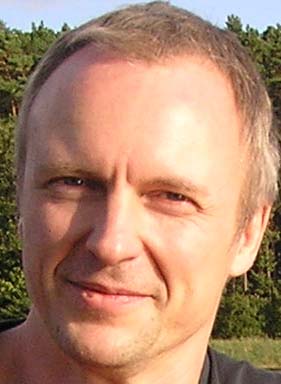Karsten Haupt,
Professor,
Compiegne University of Technology
Karsten Haupt studied Biochemistry at the University of Leipzig, Germany, where he received an MSc Degree in 1991. In 1994 he obtained his PhD in Bioengineering from Compiègne University of Technology, France. He then spent three years as a research fellow at Lund University, Sweden, where he worked on molecular imprinting with Klaus Mosbach. Back in France he has been a researcher at INSERM, Paris, before joining the University of Paris 12 as an associate professor in 1999. In 2003 he was appointed full professor of Nanobiotechnology at Compiègne University of Technology (UTC), France, where he is the Head of the Institute for Enzyme and Cell Engineering. He is also one of the founders and scientific advisor of the French company PolyIntell that commercializes molecularly imprinted polymer-based products for biomedical, food and environmental analysis. His present research interests include affinity technology, chemical and biosensors, molecularly imprinted polymers and synthetic receptors, biomimetic polymers and nanostructured materials for biomedical applications, including drug delivery, medical treatment and diagnostics.
|

|
|

 Add to Calendar ▼2013-03-05 16:30:002013-03-05 17:30:00Europe/LondonMicro and Nanostructured Molecularly Imprinted Polymers as Synthetic Receptos for SensorsAdvances in Biodetection and Biosensors in Barcelona, SpainBarcelona, SpainSELECTBIOenquiries@selectbiosciences.com
Add to Calendar ▼2013-03-05 16:30:002013-03-05 17:30:00Europe/LondonMicro and Nanostructured Molecularly Imprinted Polymers as Synthetic Receptos for SensorsAdvances in Biodetection and Biosensors in Barcelona, SpainBarcelona, SpainSELECTBIOenquiries@selectbiosciences.com Add to Calendar ▼2013-03-05 00:00:002013-03-06 00:00:00Europe/LondonAdvances in Biodetection and BiosensorsAdvances in Biodetection and Biosensors in Barcelona, SpainBarcelona, SpainSELECTBIOenquiries@selectbiosciences.com
Add to Calendar ▼2013-03-05 00:00:002013-03-06 00:00:00Europe/LondonAdvances in Biodetection and BiosensorsAdvances in Biodetection and Biosensors in Barcelona, SpainBarcelona, SpainSELECTBIOenquiries@selectbiosciences.com